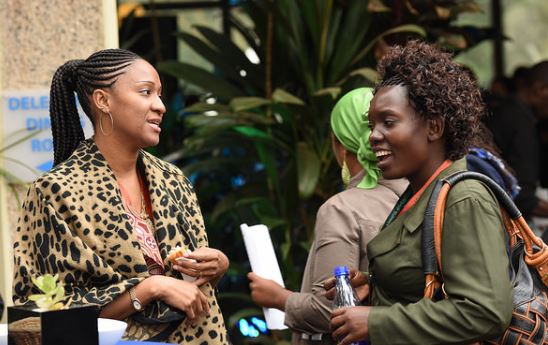
Governments must do more to keep women safe online in order to meet global goals on gender inequality, a British Nigerian activist has warned, as the coronavirus pandemic causes a surge in racism and gender-based abuse on the internet.
Women’s rights campaigners worldwide have warned of an increase in online abuse such as revenge porn as COVID-19 continues to keep many people at home in front of a screen, but Seyi Akiwowo said information on how to stay safe was lacking.
“I’m still not confident that global leaders are understanding the impact lockdown has on the online space and putting in the necessary education and interventions to keep all communities safe online,” Akiwowo told the Thomson Reuters Foundation in a phone interview.
“We’re opening a village up to the internet but we’ve not equipped any of those women in how to stay safe online and so we’re actually causing more harm.”
A prominent campaigner against online abuse, she warned that by paying inadequate attention to sexism and harassment on the internet, global leaders could jeopardise progress on reaching the U.N.’s Sustainable Development Goals – or global goals.
“If we’re going to achieve the global goals we need to make sure nobody is left behind,” Akiwowo said. “Otherwise we’re going to need an online version of the global goals in five years’ time.”
From ending hunger to tackling gender inequality, 17 ambitious global goals were set out by the United Nations in 2015 with a 30-year deadline.
Experts have warned these goals are under threat from the coronavirus pandemic when they are most needed, with goal 5 of achieving gender equality taking significant hits as women face increased risks of violence and abuse.
“You can remove a woman from a hostile home but a perpetrator can still use spyware and malware to do online staking and still have an impact and enact gender-based violence on women,” Akiwowo said.
Without more education and regulation amid a renewed push to connect more people to the internet comes a heightened risk of abuse, with Black women especially bearing the brunt, Akiwowo said.
“For me as a Black woman, I’ve face misogynoir online and offline as do so many Black women,” she said, referencing the term coined by U.S. academic Moya Bailey in 2008 to describe the crossover between racism and sexism that many Black women face.
“The online space in some ways, we need it more because it’s where we can communicate as a minority, it’s a way we can show solidarity, amplify experiences as we saw during lockdown with the amplification of Black Lives Matter.”

